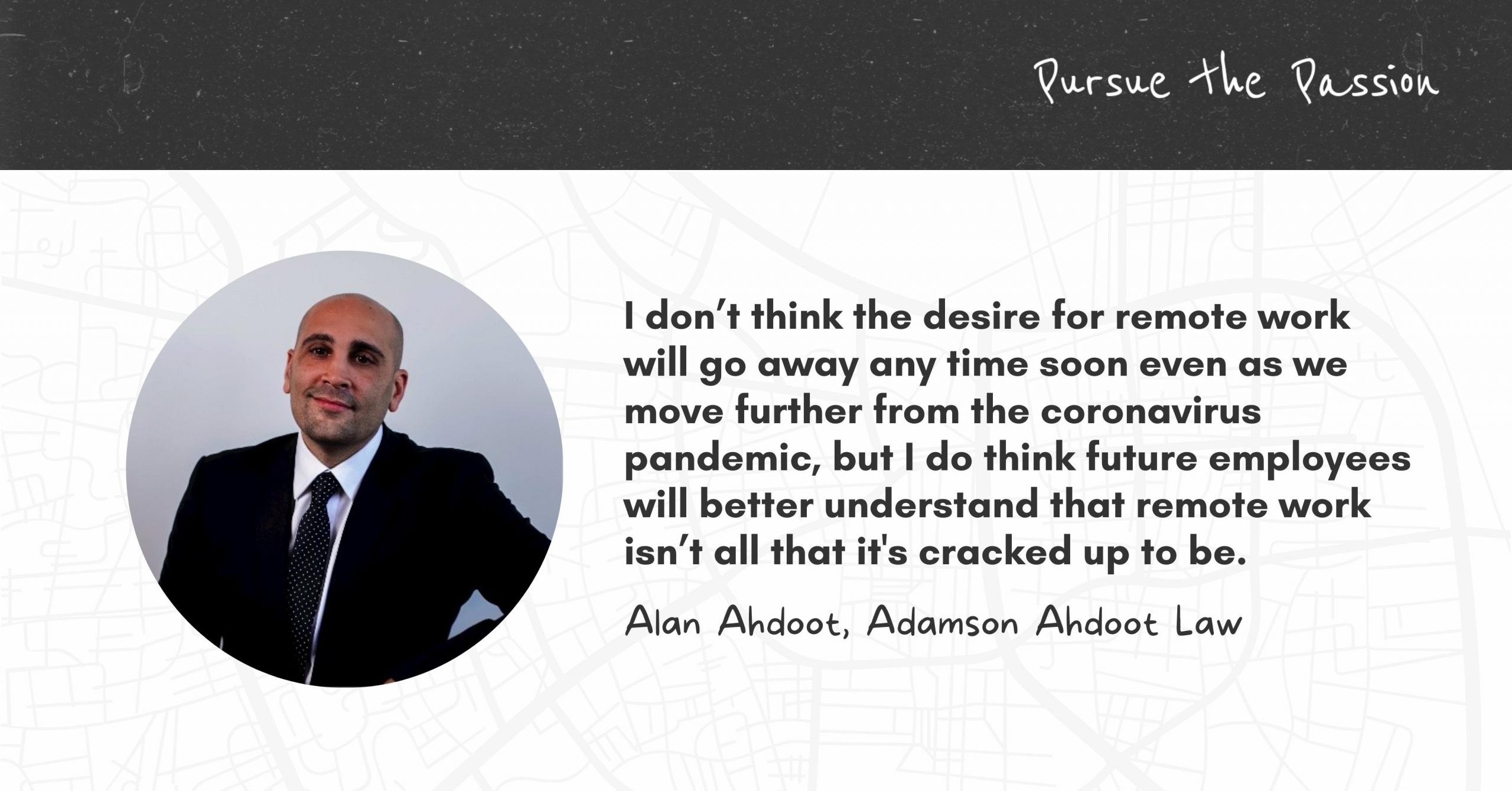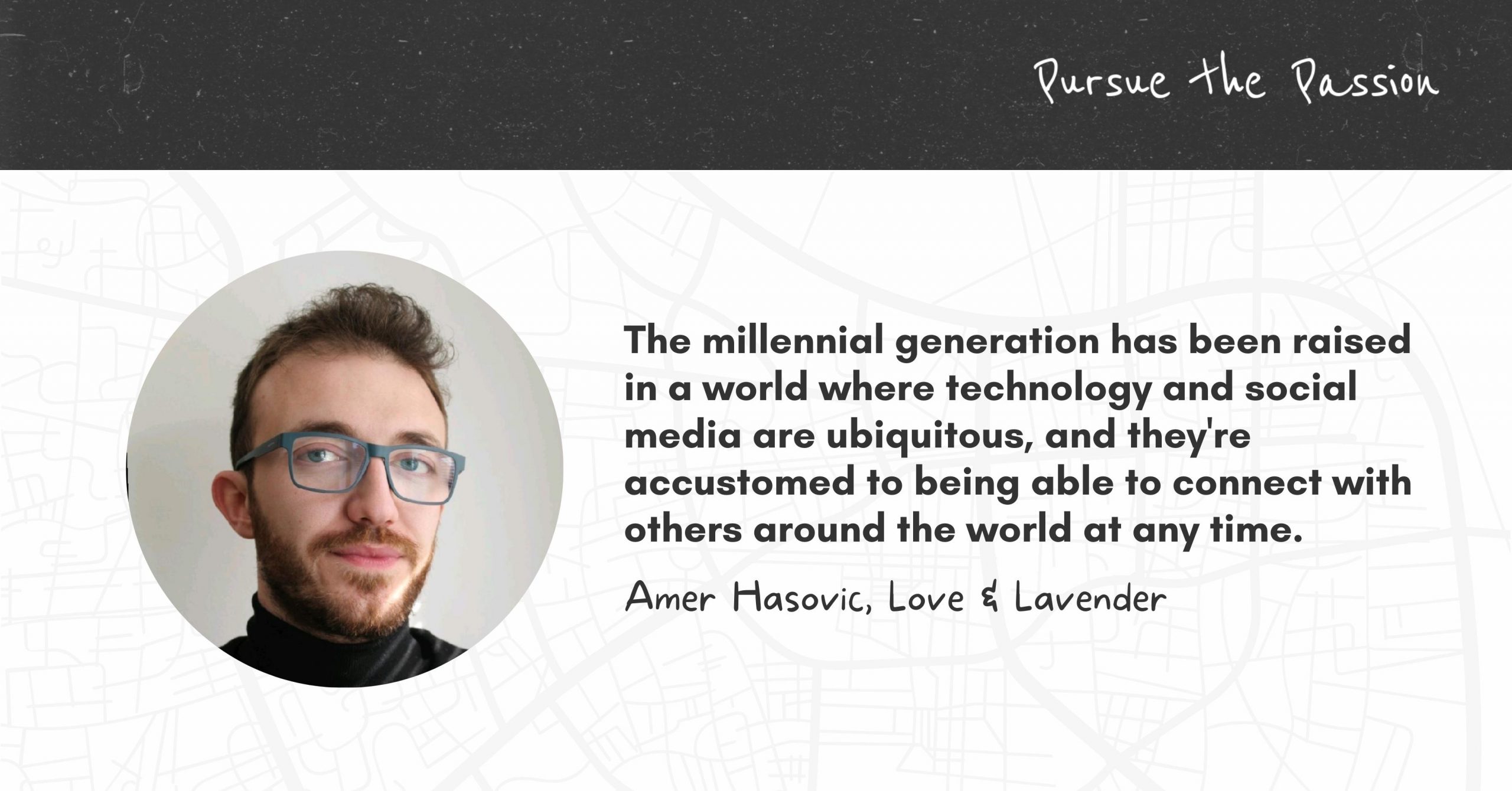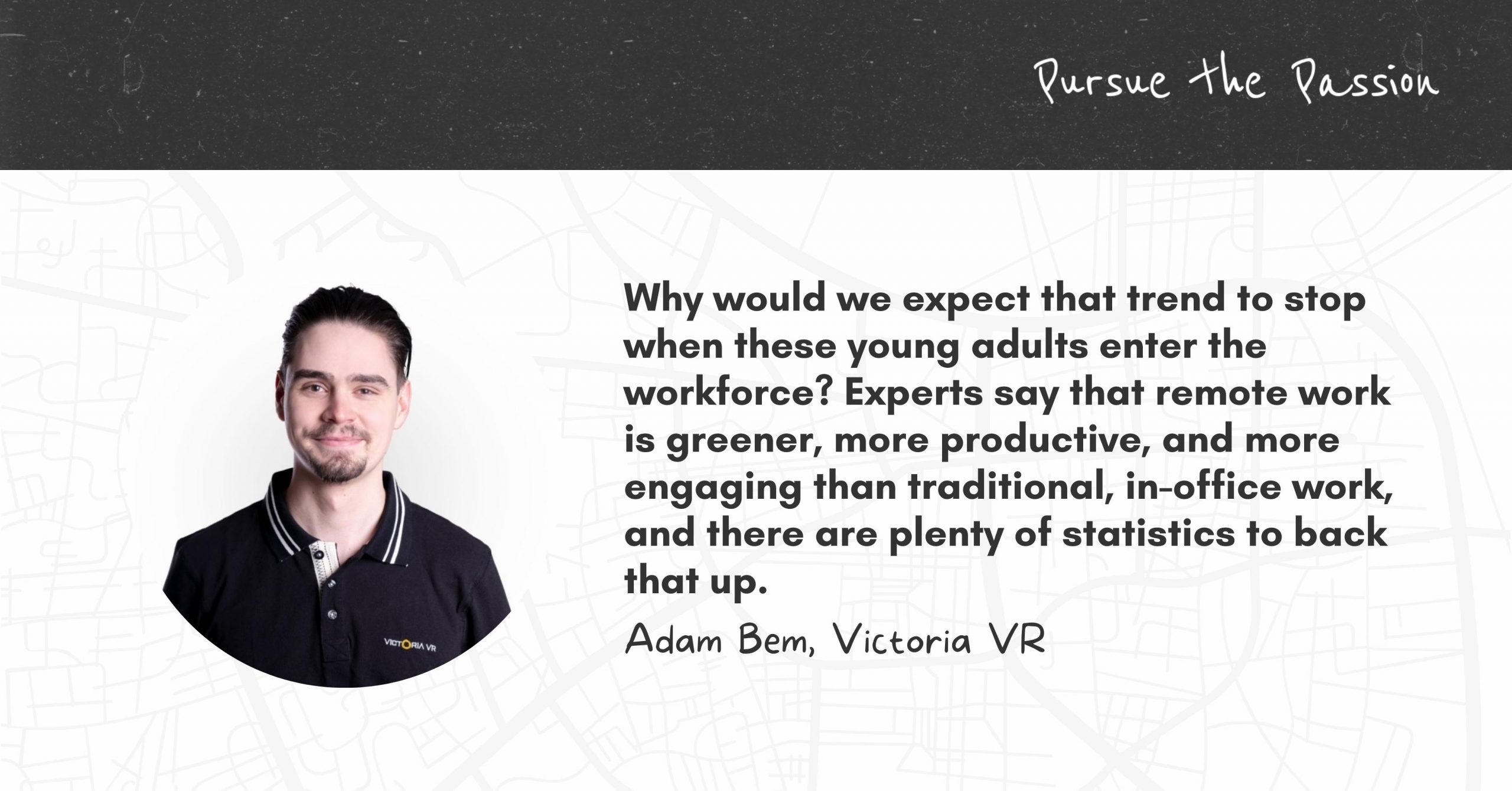Do college grads prefer remote working over office life?
To help you best assess the trend of remote work among college students and recent graduates, we asked recruiters and business leaders this question for their best insights. There are several views expressed about the trend and future of college students preferring remote work that should provoke a critical look at the issue for the future of work, business, and workforce management.
Here are 10 views these leaders expressed about college graduates preferring remote working over office life:
- Technology is Driving and Making Remote Work More Universal
- In-person Interactions are Critical for the Workplace
- Remote Work is a Great Skill to Cultivate for the Future
- The Traditional College Experience is Changing
- Working Remotely or In-Office Should Both be Encouraged
- Remote Work Will Lead to Hybrid Work for the Future
- Working From Home is a Major Privilege Recent Graduates Shouldn’t Take Lightly
- The Trend Will Continue More in America Than Elsewhere
- Remote Work Will Persist Among the Youth Over the Long Run
- College Students Need to Balance Remote Work With Traditional Workplace Skills
Technology is Driving and Making Remote Work More Universal
There’s no doubt that college students today are more tech-savvy and independent than ever before. So it’s no surprise that many of them prefer the flexibility and freedom of remote work. Unlike conventional jobs, remote work allows students to set their own hours, work from anywhere, and take on projects that interest them, while still attending classes and participating in extracurricular activities.
However, remote work is being driven by more than just the preferences of college students. Technology has made it possible for more people to work remotely, and as companies become more comfortable with the idea of remote work, the trend is likely to continue. So while college students may be among the first to embrace remote work, they aren’t the only ones.
Demi Yilmaz, Colonist.io
In-person Interactions are Critical for the Workplace
We are believers in the notion that employees should be working in an office more often than working from home in spite of what the latest demands are among college graduates. In-person interactions are a critical component of acquiring institutional knowledge of the space you’re working in. You learn a lot from your peer group and you need to be engaged with your peers to learn the most from them.
You need to convince young job candidates of that fact. I don’t think the desire for remote work will go away any time soon even as we move further from the coronavirus pandemic, but I do think future employees will better understand that remote work isn’t all that it’s cracked up to be. Recent graduates should not enter the workforce thinking remote work is the best thing for them. They learn faster and work harder being around their co-workers. You just can’t duplicate that through email and other digital tools.
Alan Ahdoot, Adamson Ahdoot Law

Remote Work is a Great Skill to Cultivate for the Future
I think it’s great that college students are getting used to working remotely. It’s a skill that will serve them well in their future careers, and I’m glad they’re getting the experience of working outside of an office environment while they’re still in school.
I don’t know if this trend will change anytime soon—but if anything, I think it may become even more popular as time goes on. As we all know, technology continues to evolve at an incredible rate, and with the rise of the internet and cloud computing, there’s no reason for anyone (especially students) not to be able to get their work done from home or anywhere else they choose.
Ishu Singh, Starting to know
The Traditional College Experience is Changing
The traditional college experience of living in a dorm, going to class, and working a part-time job is no longer the only option for students. More and more students are choosing to take classes online, live at home, and work remotely. And as the cost of college continues to rise, many students are opting to forego traditional colleges altogether in favor of cheaper alternatives like online courses and community colleges. This trend is setting the stage for a future in which more and more students work remotely, even after they graduate from college.
Danielle Bedford, Coople
Working Remotely or In-Office Should Both be Encouraged
Young college graduates are people that have personal lives and demand a work/life balance. We don’t fault them for that at our company. In fact, we want to support them as much as possible. It’s been proven repeatedly that employees who feel supported and understood remain loyal, productive employees. If those people want to come to the office every day and take lunch breaks, great. But it’s also great if they want to work from a room in their home while taking breaks to walk their dogs. Productivity is the same either way.
Asker Ahmed, iProcess
Remote Work Will Lead to Hybrid Work for the Future
Although I believe remote work is a great option for some professions, the reality is that a hybrid model is far more sustainable and practical for most people. College students who have never had a real job look at remote work as a ticket to paradise where they never have to live a 9-5 through a cubicle. While that may be true for some, the reality is that most college students are too young to really know what is best for them. My advice to all recent graduates is to experiment and try out both remote and in person work. Hybrid work is most likely the future of our world, but it is essential to build social skills and connections throughout one’s career and the earlier people start practicing those skills the better.
Patrick Robinson, Paskho
Working From Home is a Major Privilege Recent Graduates Shouldn’t Take Lightly
I have a visceral reaction any time I hear of a recent college graduate making unreasonable demands. There still needs to be a willingness to pay a few dues before earning privileges – and working from home is a major privilege. The trend can only change if it becomes clear in the business world that entry-level employees and recent college graduates are not likely to be granted work-from-home status. Remote work is a double-edged sword – and I do tend to think the benefits outweigh the downsides, but there are still downsides. Young professionals need to know what it’s like to commute to work each day and they need to hone their collaborative skills. College students who prefer remote work should slow their roll on that request.
Erik Rivera, USA Rx
The Trend Will Continue More in America Than Elsewhere
The trend of remote work is growing and will continue to grow. The millennial generation has been raised in a world where technology and social media are ubiquitous, and they’re accustomed to being able to connect with others around the world at any time. This makes it easier for them to accept working remotely and freelancing as a valid career path.
However, I think that this trend might be more pronounced in America than elsewhere. Many European countries offer generous parental leave policies, which means that young people often spend a few years at home after they finish university instead of jumping straight into their first job. This gives them time to figure out what they want to do with their lives and allows them to explore different options before settling on a career path. In addition, Europeans tend to have longer vacations than Americans do, so even if you have a full-time job you may only be working for three months out of the year.
Amer Hasovic, Love & Lavender

Remote Work Will Persist Among the Youth Over the Long Run
Because of the coronavirus pandemic, new graduates spent a lot of their college education learning from a computer and finding that remote-learning was better for their mental health. Why would we expect that trend to stop when these young adults enter the workforce? Experts say that remote work is greener, more productive, and more engaging than traditional, in-office work, and there are plenty of statistics to back that up. Over the long term, we can expect the trend toward remote work to increase, especially for younger generations that are intensely concerned about climate change and not at all afraid to change tradition.
Adam Bem, Victoria VR

College Students Need to Balance Remote Work With Traditional Workplace Skills
There are few college students who don’t prefer remote work. This is true for the rest of society too, but particularly with college students. Remote work gives students access to thousands, if not millions of job opportunities. It’s much easier to find a role that’s better-aligned with what the student wants to do as a career – rather than just working in a local bar. Nowadays, some students are already interning or working within the companies they’ll join post-graduation – while still a student. They’re using this freedom to accelerate themselves up the career ladder.
Unfortunately, other students aren’t seeing the same benefits. Without prior experience working in ‘real’ jobs – many students struggle to take themselves professionally when it comes to remote work. Their experience collaborating online is limited to group projects, which can often leave them with a steep learning curve.
Craig Galloway, Tech Detective
Submit Your Answer
Would you like to submit an alternative answer to the question, “Do recent college grads prefer working remotely?” Submit your answer here.






